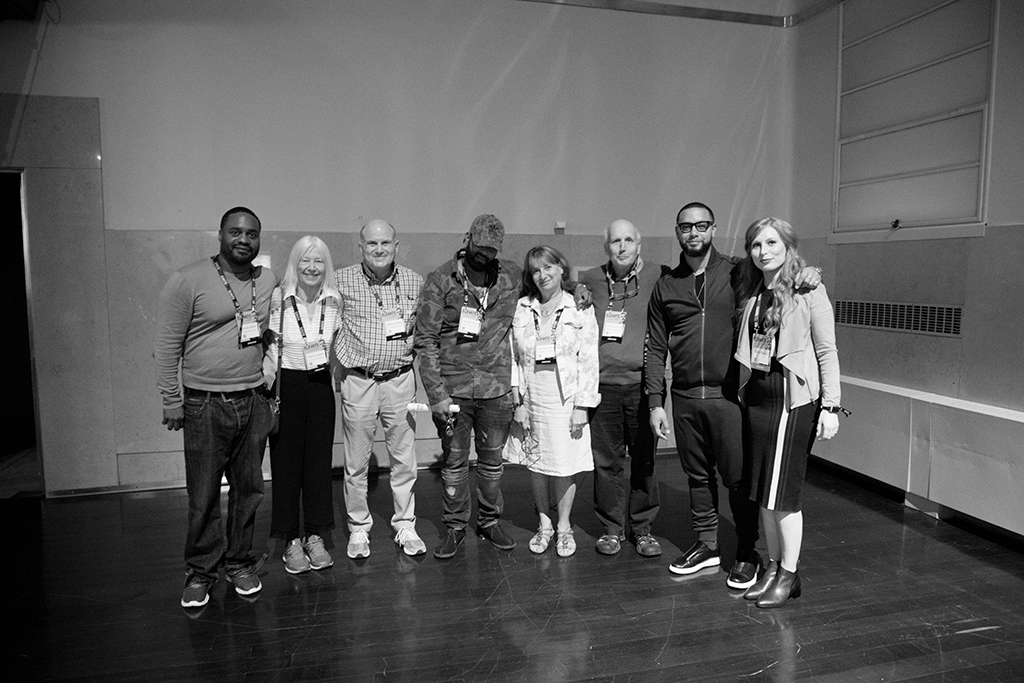This interview has been lightly edited for clarity, and all photos are by Ajani Charles.
Ajani Charles: How’s it going? So, did you come back to Toronto specifically because of the COVID-19 pandemic?
Julien Christian Lutz: Pretty much. I mean, the job I was on was ending, it was time to come home anyway, so it is what it is. But, especially as things started getting serious, everything started getting shut down
Ajani Charles: What are your thoughts on the pandemic? And how has it affected your life and career?
Julien Christian Lutz: I’m a filmmaker, so everything shut down. No shoots, like everyone, we’re all stuck in a house. I take a walk occasionally, but it’s pretty crazy. Deep, deep craziness.
Some scenarios you don’t see coming. God is the best writer.
Ajani Charles: Seriously. What is your definition of health, and how has that definition changed over the course of your life?
Julien Christian Lutz: At first, it was very much a physical, material thing. I aimed to be physically healthy, but now, as I get older, I understand mental health and what it means to have your brain and mind as healthy as your physical, moving body.
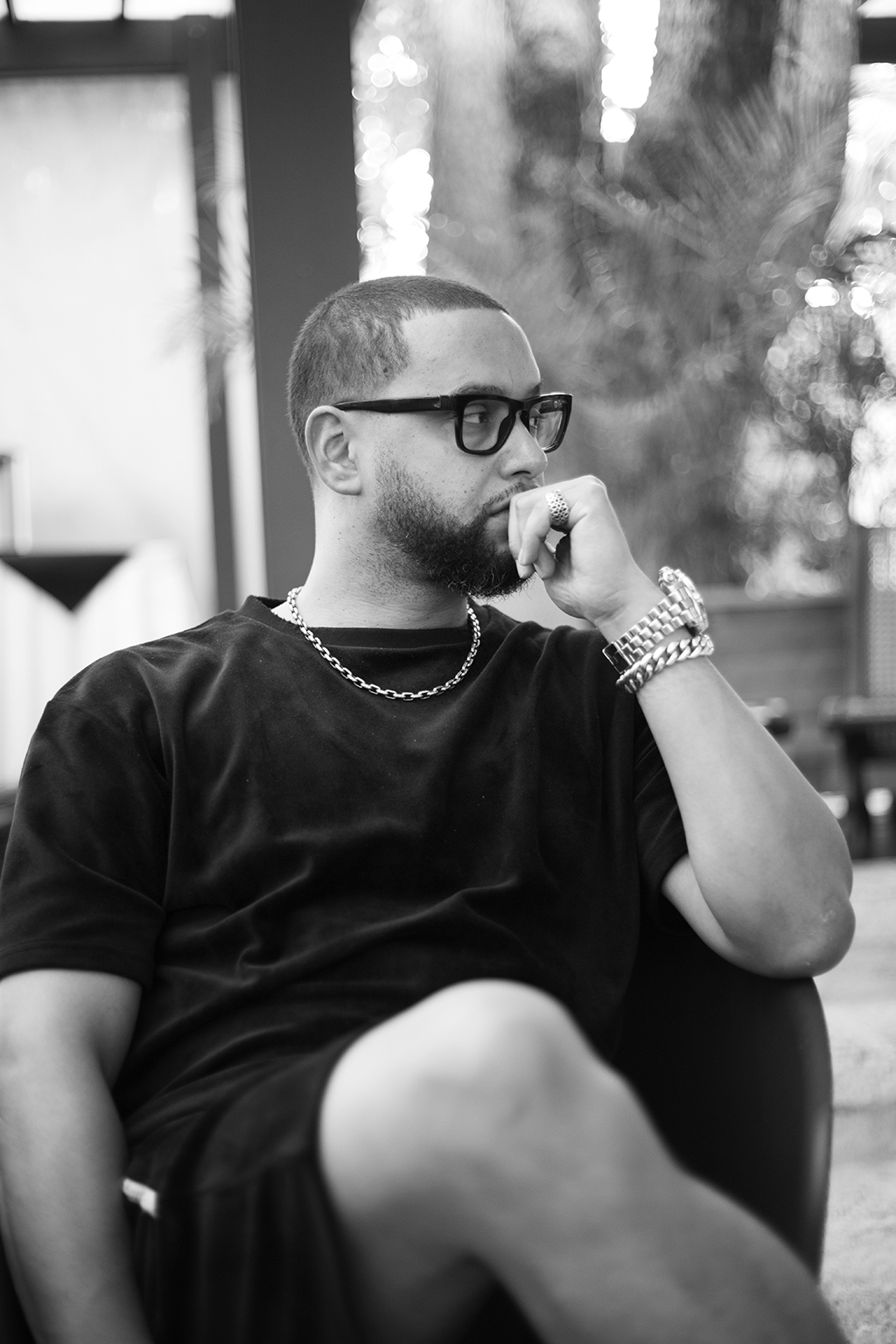
Ajani Charles: Right. What habits have you used to maintain and cultivate health before the pandemic? And at this point, during the Coronavirus pandemic?
Julien Christian Lutz: Now, my routine is not that far off from where it was before.
Usually, I get up in the morning, I do yoga for my back, I do some physical exercise, I do my meditation and then I hit the road. The big change is that I don’t hit the road. Now, I hit the couch.
Ajani Charles: No doubt. So, you’ve lived through economic downturns in the past. You’ve had a lot of different experiences, including challenges in your life.
What advice can you give young artists and entrepreneurs that may be overwhelmed by the pandemic? And how can they move forward once the pandemic is over?
Julien Christian Lutz: I don’t really know, brother. We’re in uncharted territory. There’s no making sense of this yet.
Hopefully, we all don’t go back to business as usual. But we also know how people are, so we may go back to business as usual.
Hopefully, we come out of this changed for the better, in some way, but I think that’s going be a personal thing.
Ajani Charles: Yeah, I’ve changed quite a bit in just a week, so who knows if this goes on for more than a few months.
Anyway, we’ve been working together on Operation Prefrontal Cortex for about a year now. What are your thoughts on our organization’s evolution? And what are your thoughts on violence in Toronto today?
Julien Christian Lutz: I’m really happy about what we’ve been doing, and the support that we’re getting, and not just from one segment of our community. We’re getting support from politicians, we’re getting support from the business people, we’re getting support from the community itself, in Toronto and all the way in New Jersey with Meditation Mentors coming around.
People see what we’re talking about, they see the science, and they go “Yeah, this makes sense”, and they support. So, it says something about what we’re doing, and the movement that we’re a part of, so that’s really encouraging. It’s a good thing, and it makes sense.
And then when you hear back from people who start doing it, and it doesn’t take long before they’re like “Oh, you know, this works for me, and I don’t get angry like I used to.”
One of these kids said that to me after his brother died, and I read an article that he lost his brother in gang violence.
So, this is how we really give people a chance to take control of their lives, and live the life they’re meant to be able to live. Everyone deserves a shot. Everyone deserves to live a fulfilling life. And they deserve to live a life where they get to follow their passions and create a life where they’re happy.
Everyone deserves the pursuit of happiness. We all deserve that, and it’s written into some of the oldest documents related to human rights, as far as our country and America are concerned.
And this is how we give young people who have been given a bad hand a shot, regardless of whether that bad hand is poverty or abuse. Whichever way you get that hand.
Meditation gives you that chance. It gives you that chance to live life. Some people get the message that we’re spreading and start to do it, like Meditation Mentors in Jersey did. We didn’t initiate that group, but they got the message, and they went and did it.
It’s important. It’s important work, and again, for me, this is the only thing that really makes sense.
There’s a whole lot of socioeconomic things involved with a lot of the violence going on, especially the street violence. But that’s not the only thing we’re talking about. There’s also school shootings and mass violence, and all these things that don’t come out of the hood. They come out of a whole other world, and we are concerned about that as well.
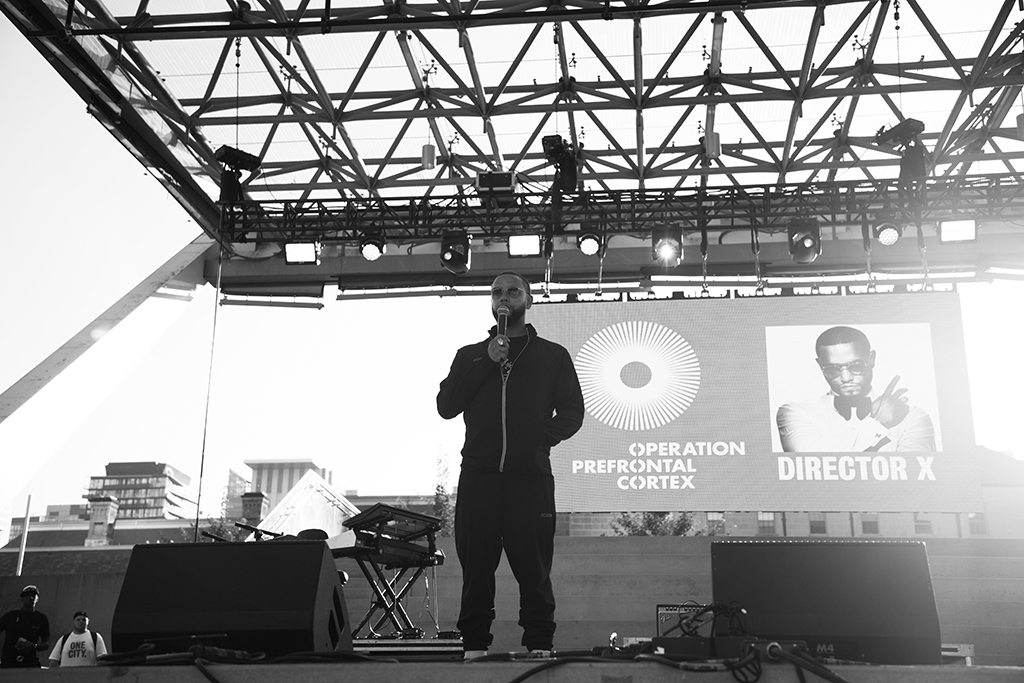
Ajani Charles: So, if Operation Prefrontal Cortex evolved perfectly based on your definition of perfect, how would that look, what would the ideal outcome be a year from now?
Julien Christian Lutz: A large drop in the violence in our city, where we can look and say “Okay, this is changing”.
The fight that’s happening in our communities is happening on many, many levels. The city officials, community groups, police. There’s a lot of people that see what’s happening, and are really trying to change it.
And we’re full steam ahead, we’re going, especially with the violence rising. And you know, once the quarantine is done, unfortunately, we’re going to get back into it. And so we need to get on that.
Ajani Charles: Do you think that the violence in Toronto will lessen throughout the pandemic?
Julien Christian Lutz: I would imagine since people are supposed to be staying inside. But, who’s to say, man. This situation is crazy.
Ajani Charles: Someone was killed by my place two days ago, close to Yonge and Dundas.
Julien Christian Lutz: Oh, wow.
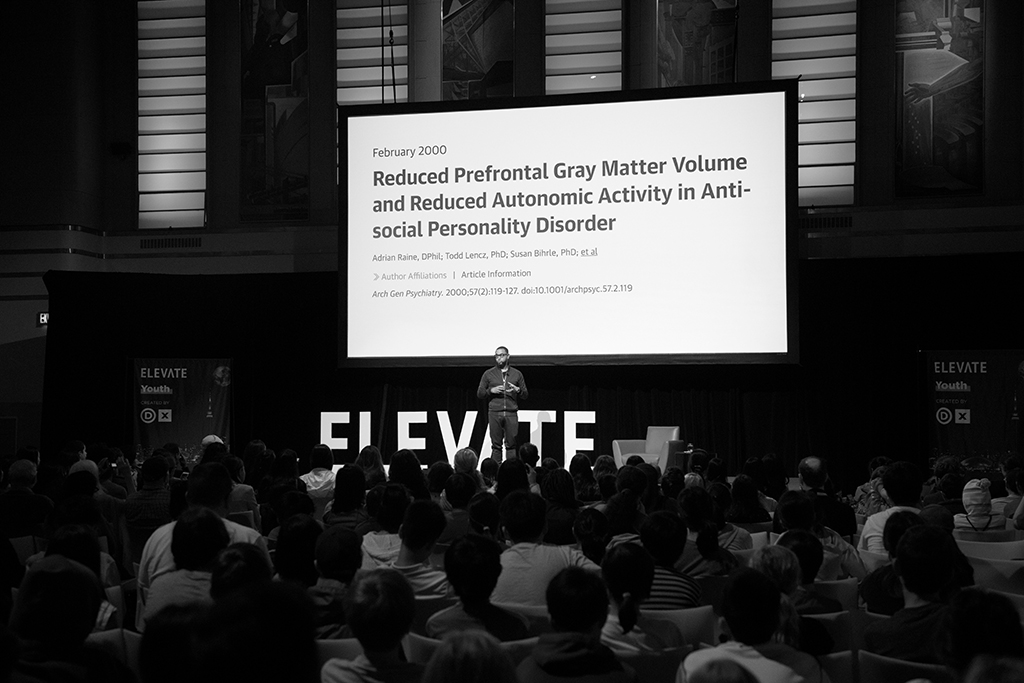
Ajani Charles: Yeah, basically by Ryerson, someone was killed the other day.
Julien Christian Lutz: We’re talking about the streets, and you can’t deny that this is street stuff. Street man aren’t really too concerned with social distancing. They go and move on with their life. But hopefully there’s just less people in the streets, and less parties, and less things to go out for. But, for man out in the streets, this is the life they live and they go live.
Ajani Charles: Operation Prefrontal Cortex was created in-part because you had a near death experience. How do you interpret that experience today? And what is your relationship to death like today?
Julien Christian Lutz: I wouldn’t call it near death, but it gives me the grounding that I need to have this conversation, because when I first started talking like this, people started coming at me like I’m not supposed to say this, I’m not from the hood, and so, “How dare you?”
People had something to say. Now, I get to respond, I’ve been shot, so I’m in this conversation, and everyone has to back off. So, I’m in it. I’m in the conversation. I got pulled in. So now, I’m here, and we’re going do something better.
Ajani Charles: Was the violence in Toronto concerning to you before?
Julien Christian Lutz: Of course, there’s always been concern around this stuff. When I was a teenager, people were getting stabbed, and there was the occasional shooting.
If you have it in you to take a life to settle a dispute, you’ll find a way to do it.
There was that 15-year-old kid who got murdered in New York, in the Bronx a couple of years ago, maybe about a year ago now, and he was the wrong guy. He was not the target.
So, the idea that innocent people will never get touched, if we just get rid of guns, yeah, it’ll get harder but that doesn’t cover it. And beyond that, this is stuff that teenagers are doing.
Can you imagine if half the foolishness you got into when you’re a teenager had life and death consequences? How many lives are we willing to sacrifice because we’re making the argument about guns and not about violence? This is about violence.
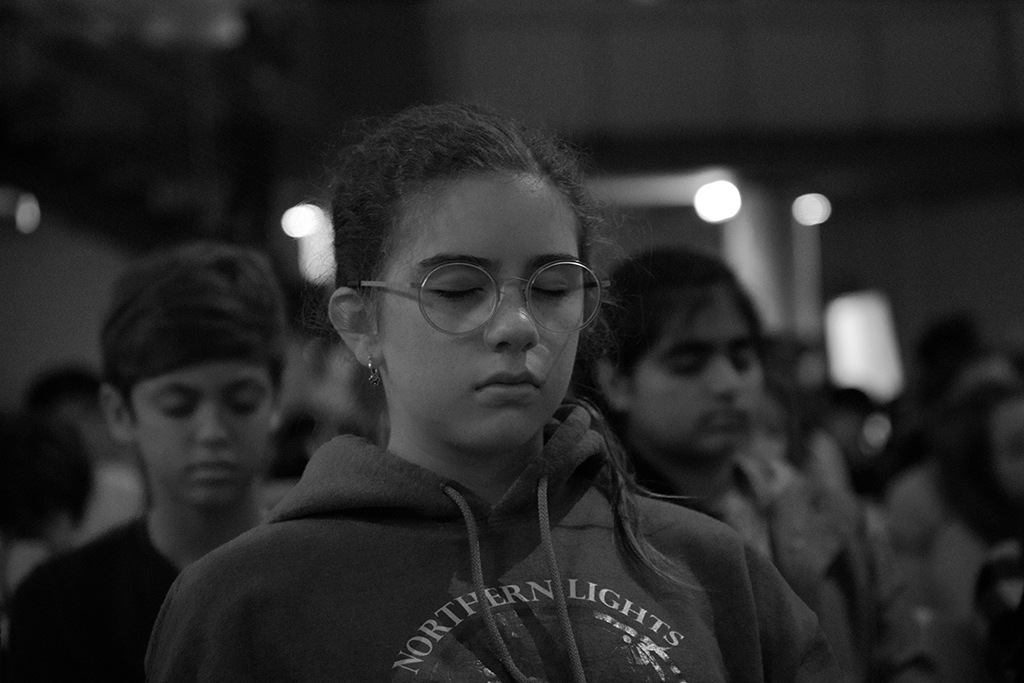
Ajani Charles: Yeah, recently in New York, I think, a 14 or 15-year-old girl was attacked by many teenage boys.
Julien Christian Lutz: Did they kill her?
Ajani Charles: No, they didn’t kill her. She survived. Thankfully. But, it’s just shocking.
When I was a teenager my concern was talking to girls, my exams, my tests, and what shows were on TV. So, seeing how extremely violent some teenagers are, it’s shocking.
There were maybe a handful of highly violent teenagers at my high school, and at the time my high school was the most populated in Canada. But now, it seems pretty common.
Julien Christian Lutz: Yeah, things get worse if you don’t deal with them, you know. So, here we are.
And who knows what happened to that girl physically because of that beating. There’s only so much damage our bodies can take and bounce back from.
This is why we got to deal with the violence and the part of the brain that says “Oh, hurting this person is the right thing.”
We know how to do it. And that’s what our programs are about, and that’s why so many people want to help us do it. It’s just the heavy lifting of getting into the institutions, because it belongs in the schools. We get into the schools, we save a generation, and it will take a minute for it to be felt. We save an entire generation and enrich their lives. So, that’s the fight.
Ajani Charles: Seeing how difficult it’s been to get Operation Prefrontal Cortex into schools, it’s shocking to me, because meditation works, programs like ours work, it’s been proven, in the United States and other parts of the world. And yet, school boards and other organizations have all these defenses in relation to it.
How do you feel about some of the roadblocks that we face, and what are your thoughts on them?
Julien Christian Lutz: It’s crazy, man. It’s not only the violence that we’re talking about. Meditation reduces violence, and their performance in school greatly changes. They do better in school. Physically, academically, socially, everything we say we want for kids in school gets better when they meditate.
So what are we doing? That’s what gets me a little annoyed. The proper response is “We’re doing this tomorrow.” That’s the only response that makes any sense.
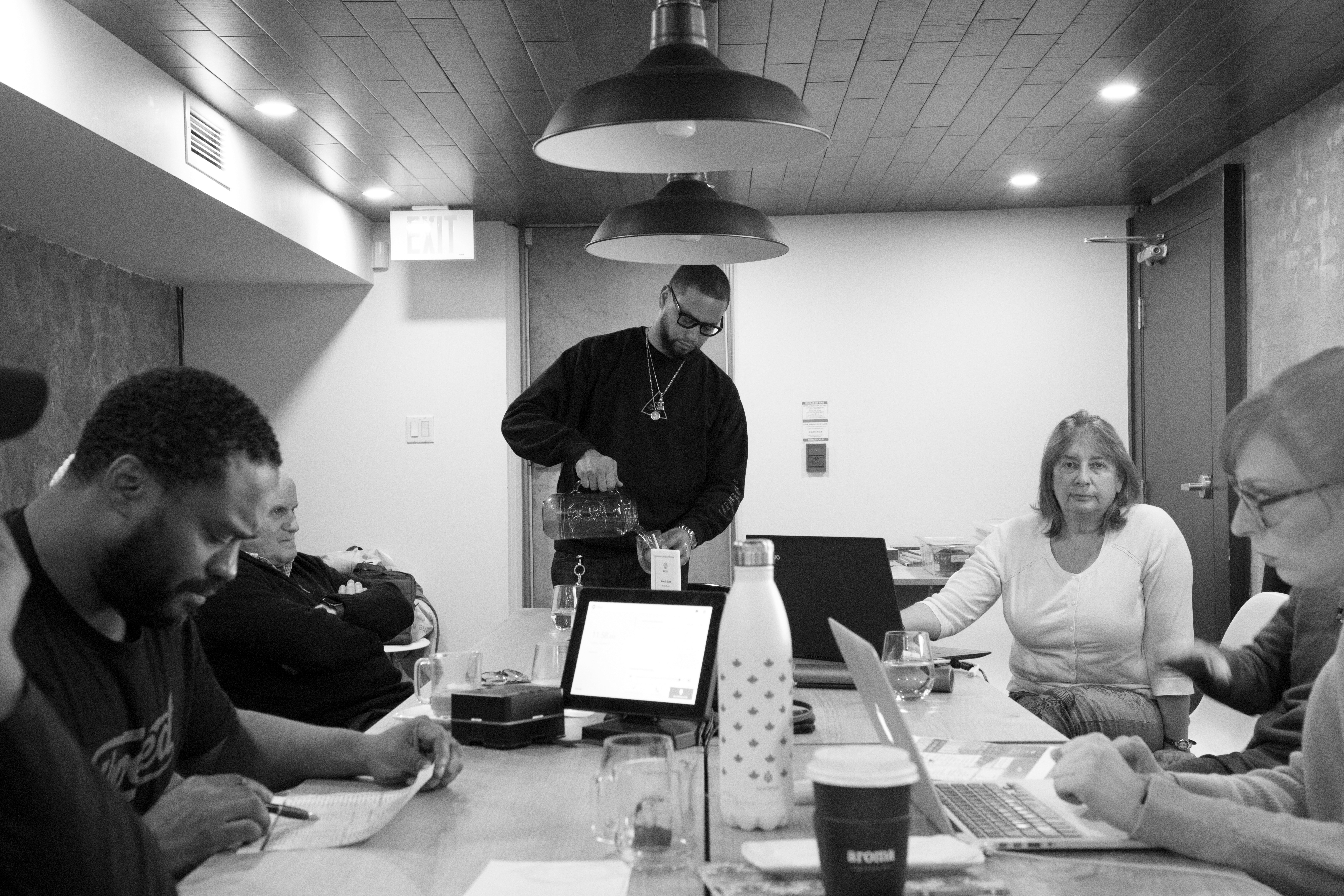
Ajani Charles: How do you think your life and career would have been different if you started meditating as a teenager?
Julien Christian Lutz: Oh, completely different. I would have been so much calmer, cooler. I mean, life would have been so much better. I would be so much further.
I had a whole lot of anger within myself that I was unleashing, at least in my work, because there was a safe place for me, being a director. I could get away with a lot, and I wish I had found meditation earlier.
Ajani Charles: Can you give me an example of a situation that you wish you could have been calmer in?
Julien Christian Lutz: Well, my whole twenties. From beginning to end, my twenties, especially my early twenties. Meditation would have made a big difference.
Ajani Charles: What are some of your greatest fears, at this point?
Julien Christian Lutz: That we won’t all figure it out, that we don’t calm the violence in the city down. And this violence, it really unravels the progress that has been made musically and culturally.
Toronto is really one of those cities that’s on the map for good reasons. It’s on the map, people want to come here, they want to visit. And so, we have to work to make sure we slow down the violence before it’s too late.
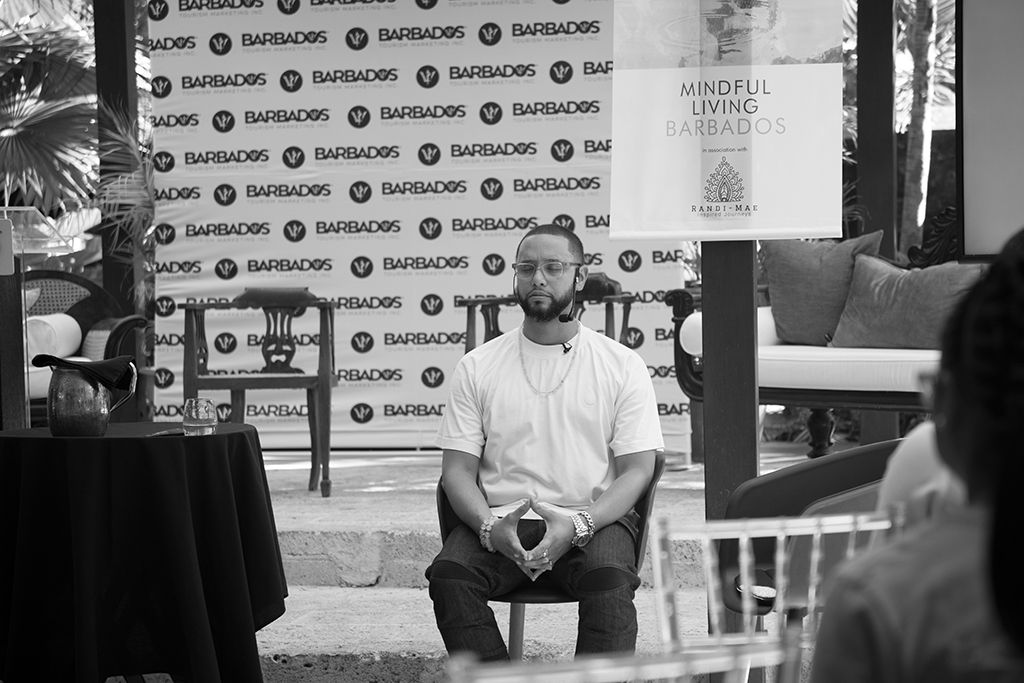
Ajani Charles: What type of pushback have you received for being so outspoken about the rise in violence in Toronto, and using mindfulness and meditation as a solution to it?
Julien Christian Lutz: There’s some people on the fringes that didn’t like the messaging because they felt it didn’t address structural racism, which I get.
I get it, and this will give people the tools to deal with structural racism. There’s only so much our organization can do.
I’m not pushing to the side the systematic racism of our system that makes the violence in our communities a very real thing. But at the same time, we have to address what the abuse and neglect of the system is doing to people, and to the brain.
Our mission is larger, as well. Our mission isn’t just the hood. Our mission is all violence, mass violence, and gun violence,
That van attack at Yonge and Finch, that was some white kid that felt rejected by the world. So, there’s a lot of people that need help.
Ajani Charles: I was at Yonge and Finch when it happened.
Julien Christian Lutz: Geez.
Ajani Charles: It was pure luck that I was at the Xerox building, at Yonge and Finch, and I just randomly started chilling in an open-air area there, instead of staying on the sidewalk where the killings were happening.
So, I was there, I was chilling and enjoying the sunlight. My phone’s going off because my mother knew that I wentb
Anyway, I’m just chilling in this open-air area, and the van attack is happening in my childhood neighborhood, meters away from where I was standing, in broad daylight.
What are your thoughts on incels? How can that phenomenon be changed?
Julien Christian Lutz: This is what makes the school part of our program so important. I don’t know how to reach incels outside of school. We got to get them in school. That’s what makes school actually more important than anything else.
We can get to the hood. We can get to the bad boys that are out there living the street life. There’s a community around them that we can get to. We can get to them, we can talk to them, and we can do some work there.
Incels, they don’t have anybody, they don’t go anywhere, and they feel trapped.
We have to get to them in school, we have to. We have to get to the next generation.
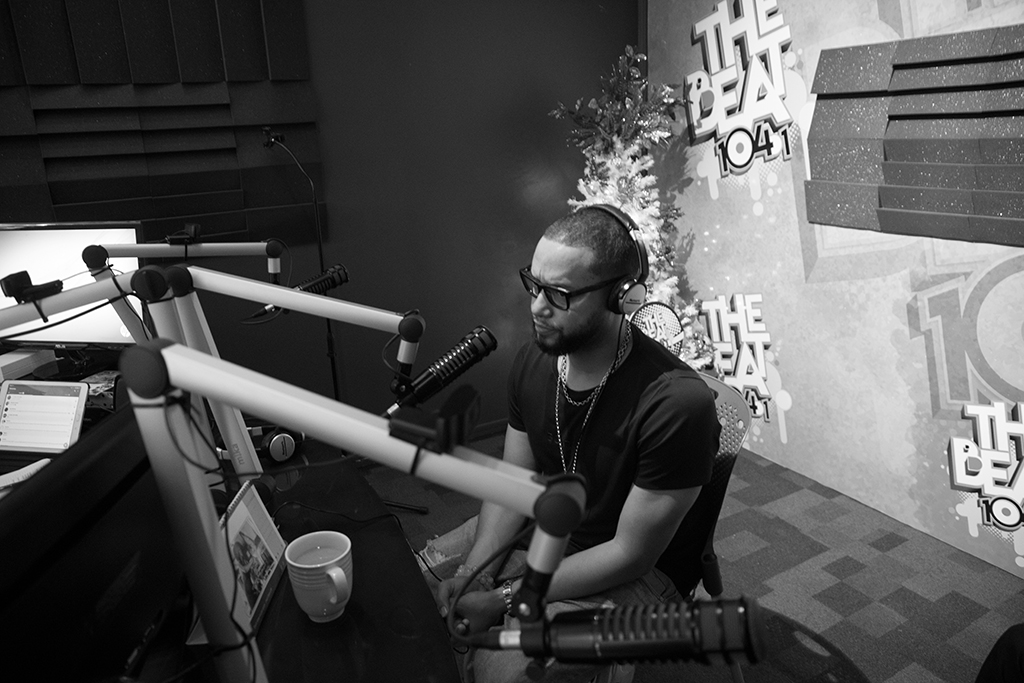
Ajani Charles: Right. What type of people do you believe are potentially too far gone for a program like ours to reach?
Julien Christian Lutz: Nobody. It’s not our choice to decide who’s too far gone. Nobody’s too far gone. We do what we do. I mean, if they’re going to take that time to close their eyes and meditate, they’re already there, and we’re walking on the right road.
Ajani Charles: As you think back on your career, what are some of the most meaningful moments to you, and why are they meaningful to you?
Julien Christian Lutz: I don’t know what’s most meaningful, but what I’ve been doing now is using meditation in my work.
I’ll have actors meditate before they do a reading or I’ll have actors meditate on set as a way of clearing their minds, as a way of helping them visualize a new performance. I’ve incorporated this into my work. And I can see the performances that I get when I do it. It’s a helpful tool, beyond what it does for the main points of our mission.
I use it when I work, we get the benefits of meditation, and again I see the changes, I see the performances I get.
Ajani Charles: How would you compare a great actor, when they haven’t been meditating, to a great actor when they have been meditating?
Julien Christian Lutz: I’ve been doing it with a lot of professional actors, but I can definitely see the changes in real people or amateurs. I’ll do it with people that are training, stuff like that. It kind of clears their mind, clears their palette and leads to a fresh performance.
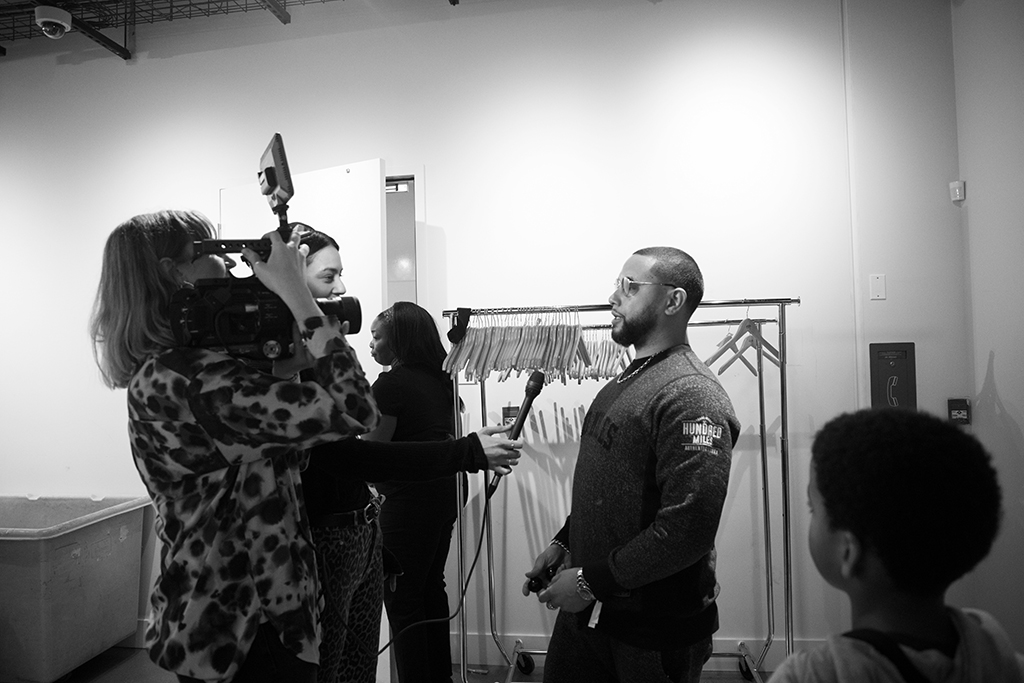
Ajani Charles: That’s awesome.
If you could go back and give yourself advice, if you could go back to your early twenties and give yourself some advice, what would you say to your younger self and why?
Julien Christian Lutz: “Start meditating and you will be calm, cool, and all the things that you want will come.” If I could go back, that would definitely be the one piece of advice I would give myself.
Ajani Charles: Do you think you would listen to yourself?
Julien Christian Lutz: Yeah, listen, I might have been hard-headed, but I wasn’t that hard-headed.
Ajani Charles: Cool, thanks a lot for doing this interview, I think that it will help a lot of people.
I am concerned about how the violence in our city might play out once the pandemic wraps up. I think for the time being, the rising gun violence will go down, but who knows what happens when everyone can go back outside.
Julien Christian Lutz: We’ll see, man, but we keep on doing our work. Thank you, man.
